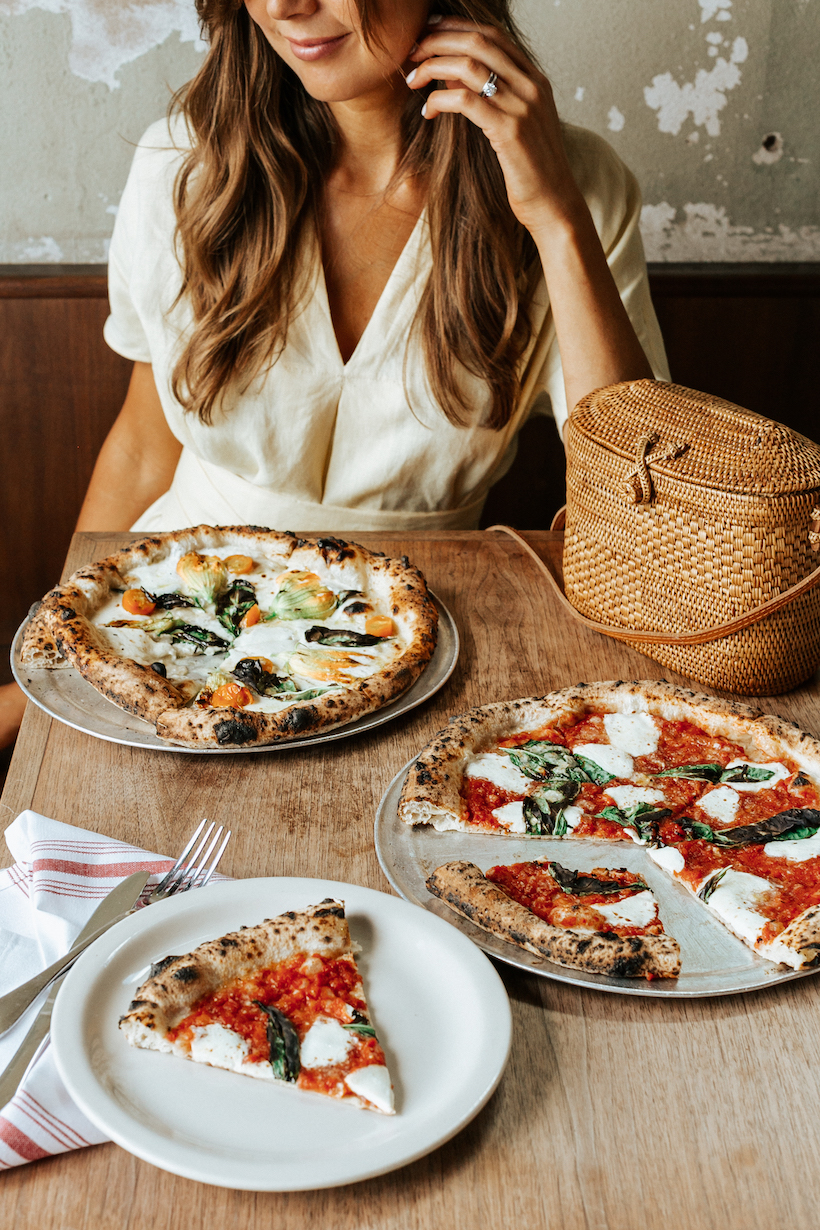Check the box if you now or have had in the last year any of the following conditions:
– Cut out an entire food group (gluten, dairy, carbs, etc.) because you’ve heard that it “isn’t good for you,” but you’re not entirely sure why.
– Had a food plan that makes it difficult to go out to eat at restaurants or with family and friends.
– Followed a diet and gotten some good results, but then found it unsustainable to maintain over time (and gained back weight.)
– Extreme confusion over which hot new eating plan to follow, since Whole30 peeps have evidence that’s as compelling as the plant-based folks, yet the two diets seem to teach two totally opposite ways of eating.
If you checked yes to any of the above, it’s highly likely that you’re someone who (like me) is especially susceptible to fad diets and their shiny promises to make you feel great, drop excess weight, and have glowing skin.
The problem with many of these eating plans is that they require a massive amount of effort and discipline to stick to – and may require swearing off some of your favorite foods. And really, who wants to live without ice cream or bread for the rest of their life? (For those of you who have actual food sensitivities, please know that I am truly sympathetic and acknowledge that cutting out those inflammatory foods is likely the right decision for you. Here, I’m talking specifically to those who are cutting out foods because someone said they should, even though they haven’t personally felt any negative effects.)
But I’ve got some great news, and it’s come from my own “aha moments” after years of swinging from low-carb to lectin-free (I even tried a bone broth diet once that was true torture):
Different eating plans actually do work for different bodies.
The more I research, the more I truly believe that some people can totally thrive on a paleo diet whereas others might need more healthy carbs in their life to feel their best. So someone who buys into a different way of eating than you is not necessarily wrong or misguided – recent studies on epigenetics (the study of how our genes express themselves) prove that genetic alterations affect how your body breaks down fats and sends hunger signals. According to Dr. Sara Gottfried, “As a result of genetic variation, two people could eat the same exact diet but put on vastly different amounts of weight.” Meaning there is truly no one-size-fits-all diet. This was a huge realization for me, because it solved my constant confusion of how these different diets that seem so different from each other could all boast compelling evidence as to why they seem to work well for their followers.
HOW you eat is as important as WHAT you eat.
One of my favorite books that I’ve read this year is The Slow Down Diet. The basic premise is that our mental state can actually affect the way that our bodies digest food and burn fat as energy. From breathing while eating to chewing food more thoroughly to actually bringing pleasure and enjoyment to our meals – the author shows how awareness has a profound affect on the way we eat and process food.
“Awareness is presence. It’s our capacity to experience what life is doing in this moment. And when we bring awareness to our eating experience, it’s a wondrous metabolic force.”
It’s really not just “calories in, calories out,” after all.
The Mediterranean diet is the most universally beneficial for long-term health.
Note that I said “universally beneficial,” meaning it may not be the best for every single person (see my first point.) The reason I call out the Mediterannean diet, other than the fact that this annual report named it healthiest among the 41 most popular eating plans, is that it really is all about a balanced approach to eating that doesn’t demonize any one food group. What it does do is put front-and-center the common sense foods that we all know are good for us.
It emphasizes lots of vegetables, omega-3 rich fats, very small amounts of red meat, and it limits sugar and simple carbohydrates. Most importantly, the Med diet emphasizes physical activity and social relationships as the foundation of a healthy lifestyle.
I’ll share more in another post about exactly what I’m eating on a Mediterranean diet these days and all the different ways it benefits our health (would y’all like some Med diet-focused recipes??), but for now, here’s the deal: fad diets come and go, and the only thing that we can say without 100 percent certainty is that lifestyle changes encouraging high-quality unprocessed foods, including lots of vegetables and avoiding sugar, are a winning combination.
I’m personally enjoying my newfound food freedom that allows me to listen to what my body really wants. If a bowl of whole-grain pasta (loaded with a higher ratio of tomatoes, zucchinis, and fresh herbs than actual pasta) sounds good to me, there’s zero reason why I shouldn’t have it. If I’ve eaten a delicious grilled steak for dinner, perhaps I focus on veggies and a lighter protein load the next day. And if I want a glass of good red wine, I’m going to savor every sip, guilt-free.
The best diet is one that we can maintain for our entire lives, that doesn’t sacrifice the true pleasure found in food and celebrates gathering around a table with people we love to enjoy it. It means listening to our bodies and eating when we’re hungry, stopping when we feel (almost) full. It means – eating #likeyoumeanit. As The Slow-Down Diet perfectly states:
Give up all numbers. Let go of counting anything you eat. Live. Eat. Believe in yourself. Find your natural intelligence. Trust it. Respect it… You and I have an instinctive and effortless appetite that will clearly speak to us when we let go of fear and listen.
I’d love to hear from you guys: do you tend to jump on the fad diet bandwagon? What have your results been and what have you learned from the experience?








